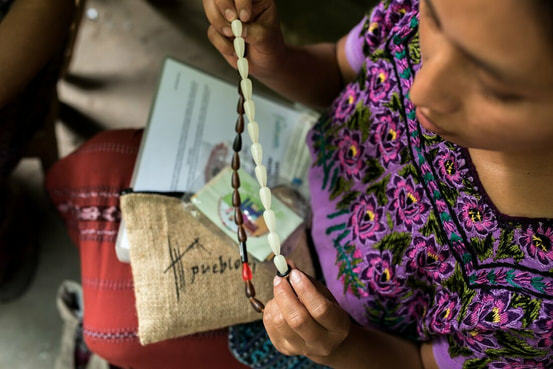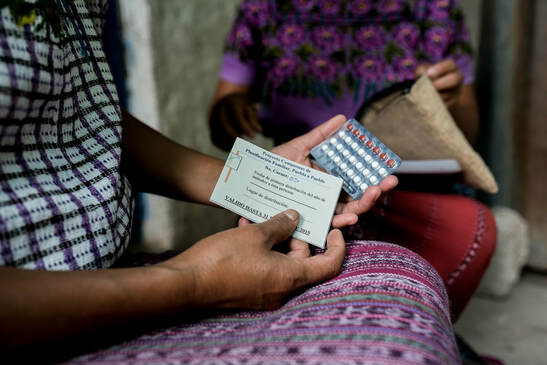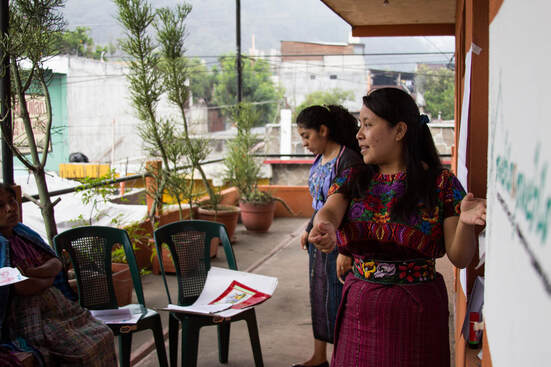Many women in rural Guatemala do not have access to education on family planning methods, and many lack access to the methods themselves. In 2011, a national survey showed that only 21% of Guatemalan women of reproductive age reported using a modern contraceptive method, and 72% reported an unmet contraceptive need.(1) That's why family planning is one of the central topics covered in Maternal Child Health project workshops, and when project participants turn this new knowledge into action, it often changes their lives in meaningful ways. Two out of three women in the Maternal Child Health project use a method of family planning, and the project offers not only education on the various methods available but also subsidizes participants' access to those methods at a local clinic.
Maternal Child Health project coordinator Rebeca Sosóf brought this up with Juana during a check-in meeting last year. “We’re not trying to impart that having children is a bad thing,” she told her. “However, family planning methods can help you provide for your children by considering your family’s situation in choosing the best time to have another child.”
Shortly after that meeting, Juana began to use a family planning method. During last month’s check-in, she explained why she had been reluctant at first. “I didn’t understand what family planning had to do with my life," she told Rebeca. "But I've now decided that in order to take care of my children, I have to take care of myself, too.” Rebeca was glad to see Juana take this step. “We’ll be here to support Juana as she continues to advocate for her own well-being,” she said.
Ana told Rebeca that in January, she and her husband sat down to discuss their plans for the future and decided that they should begin to use a family planning method. She had not used a method before this year, she explained. “But after that conversation I was able to use the new knowledge I gained through the project to pick the best method for me.” Ana and her husband then decided to begin a project they’d been considering for a while: building a new bathroom in their home! Now that Ana has taken control of spacing her pregnancies, she and her husband feel more confident in their ability to save up enough to complete the project bit by bit.
The stories of Juana and Ana are examples of the power of reproductive health education to empower women and their families. Rebeca and the rest of the Maternal Child Health team work hard to give women the tools they need to advocate for their health and the health of their families. Consider supporting the Maternal Child Health project today!
(1) Encuesta Nacional de Salud Materno Infantil, report (Guatemala: Instituto Nacional de Estadística, 2011).
*Names have been changed to protect project participants' privacy.




 RSS Feed
RSS Feed